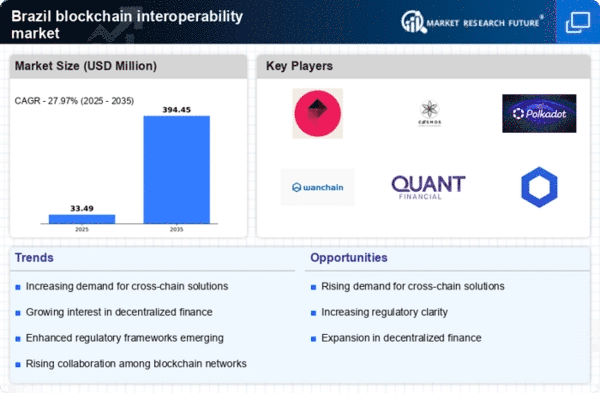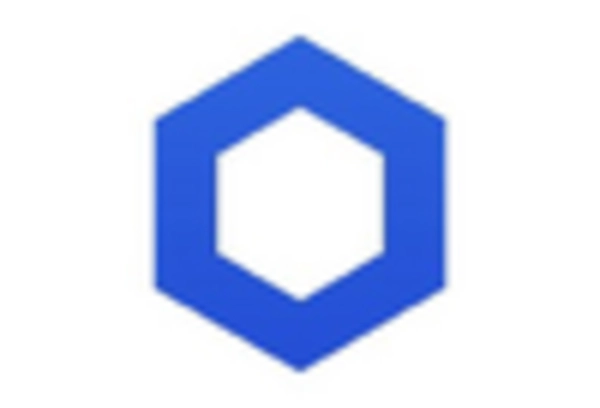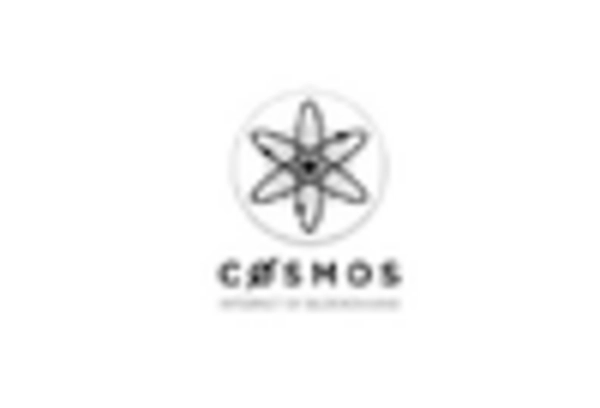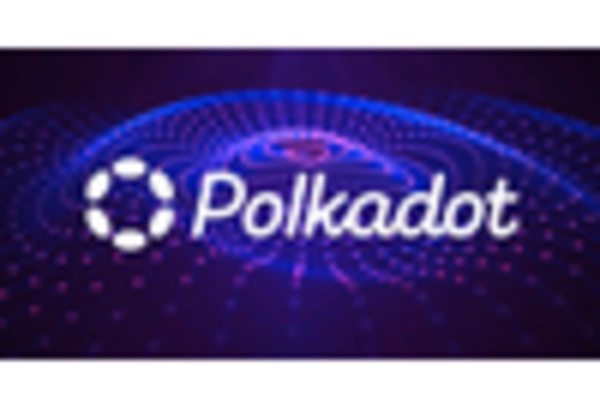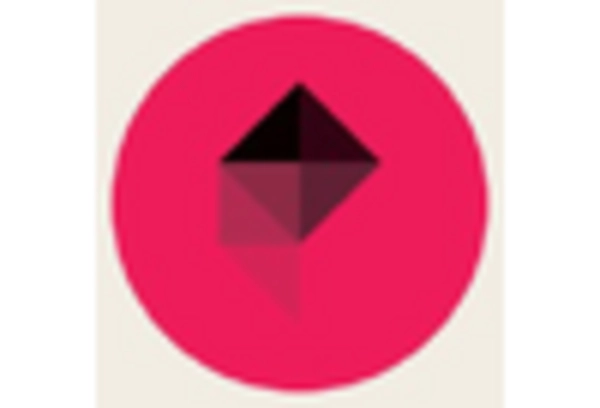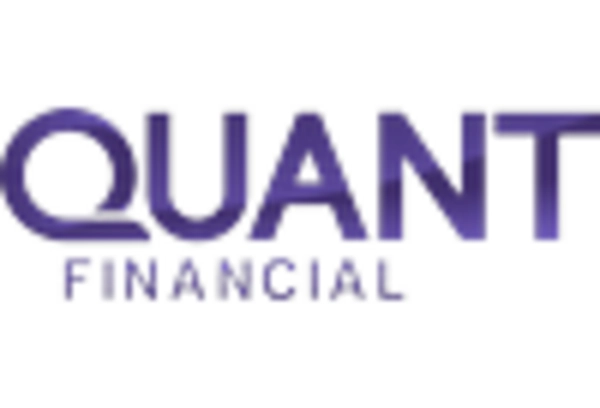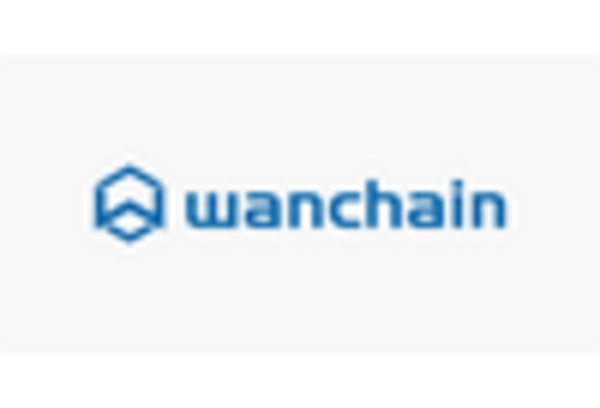Rising Adoption of Digital Assets
The increasing acceptance of digital assets in Brazil is a pivotal driver for the blockchain interoperability market. This acceptance highlights the need for seamless interaction between different blockchain networks. As more businesses and consumers embrace cryptocurrencies and tokenized assets, the need for seamless interaction between different blockchain networks becomes apparent. In 2025, it is estimated that the number of cryptocurrency users in Brazil could reach approximately 20 million, representing a growth of over 50% from previous years. This surge in digital asset adoption necessitates robust interoperability solutions to facilitate transactions across various platforms, thereby enhancing user experience and operational efficiency. The blockchain interoperability market stands to benefit significantly from this trend, as companies seek to integrate diverse blockchain systems to support their digital asset strategies.
Emergence of Decentralized Finance (DeFi)
The rapid growth of decentralized finance (DeFi) platforms in Brazil is driving demand for interoperability solutions within the blockchain interoperability market. DeFi applications, which allow users to lend, borrow, and trade without intermediaries, require seamless connectivity between different blockchain networks to function effectively. As of November 2025, the total value locked in DeFi protocols in Brazil is projected to exceed $5 billion, highlighting the substantial financial activity occurring within this sector. This growth underscores the necessity for interoperability solutions that can bridge various DeFi platforms, enabling users to access a wider range of financial services and products. Consequently, the blockchain interoperability market is likely to see increased investment and innovation to meet the needs of this burgeoning ecosystem.
Increased Focus on Data Privacy and Security
The growing emphasis on data privacy and security in Brazil is a crucial driver for the blockchain interoperability market. As organizations and individuals become more aware of the risks associated with data breaches and cyber threats, there is a heightened demand for secure and private blockchain solutions. In 2025, it is anticipated that over 70% of Brazilian enterprises will prioritize data protection measures, which may include adopting interoperable blockchain systems that enhance security protocols. This focus on privacy not only drives the need for interoperability but also encourages the development of innovative solutions that can safeguard sensitive information while facilitating cross-chain transactions. Thus, the blockchain interoperability market is poised to expand in response to these evolving security concerns.
Growing Interest in Supply Chain Transparency
The increasing demand for transparency in supply chains is emerging as a significant driver for the blockchain interoperability market in Brazil. As consumers and businesses alike seek to ensure ethical sourcing and traceability of products, blockchain technology offers a viable solution. In 2025, it is projected that the adoption of blockchain for supply chain management in Brazil could reach 30% of all enterprises, reflecting a growing recognition of its benefits. Interoperability between different blockchain systems is essential to provide a comprehensive view of supply chain activities, enabling stakeholders to track products from origin to consumer. This trend is likely to propel the blockchain interoperability market forward, as companies invest in solutions that enhance visibility and accountability in their supply chains.
Government Initiatives for Blockchain Development
Brazilian government initiatives aimed at promoting blockchain technology are significantly influencing the blockchain interoperability market. The government has recognized the potential of blockchain to enhance transparency, efficiency, and security in various sectors, including finance, supply chain, and public services. In 2025, the Brazilian government is expected to allocate approximately $100 million towards blockchain research and development, fostering an environment conducive to innovation. These initiatives may encourage collaboration between public and private sectors, leading to the development of interoperable blockchain solutions that can streamline processes and improve service delivery. As a result, the blockchain interoperability market is likely to experience growth driven by these supportive government policies.


